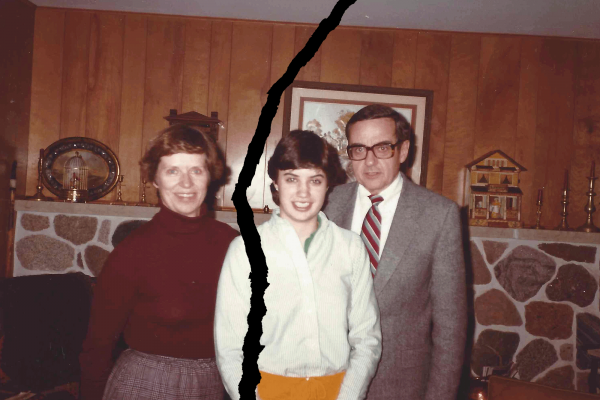While Christians celebrate Advent, Muslim and Arab Americans are living in fear of violence.
For many Christians in the West, Advent is a time of preparation infused with prayer, anticipation, and reflection. This year, Advent is painfully marked by more than 18,000 Palestinian deaths — including more than 7,000 children — as a result of Israel’s brutal military retaliation for the Oct. 7 Hamas attack. But the violence stretches beyond the borders of Gaza and the West Bank.
Christians’ Advent reflections should inspire us to consider ways to stand side by side with Muslim and Arab Americans. In the U.S., current anti-Arab and anti-Muslim sentiment is contributing to hate crimes nationwide. In October, the number of reported anti-Muslim incidents skyrocketed; compared to the number of incidents during an average 1-month period in 2022 (406), hate crimes have risen by over 200 percent (1,283), according to the Council on American-Islamic Relations.
After 9/11, people attacked Arabs or people who “looked like Arabs” because they associated being Arab with being Muslim. People caught in the Islamophobic dragnet included Hindus, Sikhs, and Christians, especially if they were non-white and wore clothing perceived as foreign, such as turbans. Challenging Islamophobia means standing up for Muslims and other religious and racial minorities who are affected by it.
According to a 2022 poll, white evangelicals have some of the most negative opinions of Muslims among U.S. religious groups. But the problem isn’t just white evangelicals: The poll, conducted by the Institute for Social Policy and Understanding, also found that Catholics, Protestants, the general public, Muslims themselves, and religiously unaffiliated folks only exhibited slightly less Islamophobia than evangelicals. In other words, Islamophobia, like anti-Black racism, has been a building block of U.S. culture. After all, approximately 30 percent of enslaved Africans who were brought to the U.S. were Muslims; white people justified slavery by claiming supremacy on the basis of both their Christian faith and their race.
After detailing the long history of Christian Islamophobia, Todd Green, director of campus partnerships for Interfaith America and a leading scholar of Islamophobia in the U.S., wrote in 2021 that “greater responsibility among white Christian leaders and communities” is necessary to combat Islamophobia, which he describes as a form of racism. Although being Muslim is not tied to a single race, Muslims are viewed in a monolithic way that portrays them as exclusively being Arabic or being prone to violence and terrorism. Islamophobia is thus a form of racism that targets racialized minorities by making assumptions about cultures and religion. Disdain for Arabs and Muslims shapes American or, more broadly, Western society, including many “interfaith” relationships where Islam is erased from the conversations or too closely associated with all Arabs.
In her 2018 article, “Soft Islamophobia,” Namira Islam Anani, a human rights lawyer and a faith-based activist, recounted her experience at a gathering focused on working out anti-Islamophobia strategies attended by presumably progressive clergy. At the gathering, she quoted the Quran, the other participants hijacked the gathering by quoting their own scriptures. While the organizers wanted “to center Muslims, the agenda included no time for any of the daily prayers and there was no space designated for prayer for the Muslim attendees,” she wrote. “Islamophobia was the focus. Islam was an afterthought.”
Accounts like Anani’s demonstrate the importance of countering both personal and collective Islamophobia. The National Strategy to Counter Islamophobia in the United States, announced by the White House on Nov. 1, would have, perhaps, been received with enthusiasm by American Muslims in the past. Yet some Muslim leaders, including Rami Nashashibi who is the founder of the Inner City Muslim Action Network of Chicago, expressed skepticism that Muslims and Arab voters would believe the sincerity of Biden’s effort, given the perception this strategy was rolled out to distract Muslim and Arab voters from the Biden administration’s staunch support for Israel.
However, many Muslim activists and leaders are more positive toward local, grassroots initiatives that emphasize interfaith organizing. Sahar Khamis, an American Muslim scholar of Arab and Muslim media at the University of Maryland, told me via WhatsApp messaging that no community can challenge injustice on its own. “I always stress that no one is safe until we are all safe, and that Islamophobia, or anti-Muslim hatred, is only one part of the larger evils of racism, discrimination, and xenophobia,” she said. “No one group can fight these evils all by itself. We can only fight them hand in hand and shoulder to shoulder. That’s what it means to be a true Jew, Christian, Muslim, or person of faith.”
I think it is important to stand in solidarity with Muslims and Arabs because we are all beloved children of God. In a country where much of the bigotry against Muslims and Arabs comes from Christians, we must show that loving our neighbor is, first and foremost, about taking action and standing together even in our differences.
Here are some things your church can do for your Muslim and Arab neighbors this Advent and beyond:
1. Support and participate in interfaith initiatives. For example, Arise in Chicago brings together local faith leaders to fight for labor rights as well as advocate for public policy changes. A local imam is a member of Arise’s board of directors, along with Jewish and Christian faith leaders.
2. If the Muslim community is not represented in your local interfaith group, invite them. “Interfaith” groups that do not make an effort to diversify their membership by including Muslims are exclusionary.
3. Stand by your local Muslim and Arab communities on a regular basis. When they are grieving following an Islamophobic or anti-Arab hate crime for example, join them in their lament. Attend the Friday worship (Jummah) and form a partnership with the local mosque (masjid)or non-religious Arab organizers.
4. Bring in speakers to your church. Muslim religious leaders, scholars, and activists are willing to speak to people about their faith. Check with the local masjid, Islamic cultural center, or higher education institution. Shabana Mir, a scholar of American Islam at the American Islamic College, told me she’d recommend churches engage with diverse Muslims, including women, LGBTQ+ folks, and believers from outside of the Sunni and Shi’a expressions of the faith.
5. Create spaces where Christians can talk about and correct their own Islamophobia or anti-Arab sentiments. Many progressive churches already have spaces in which they try to confront their white supremacy. These can be expanded to include challenging Islamophobia and anti-Arab bias which are also fueled by white supremacy. In doing this, encourage nuances and subtleties, create space to acknowledge the diversity of Islamic and Arabic cultures. Rather than doing a book group around Robin DiAngelo’s White Fragility, check out British Muslim author Layla F. Saad’s Me and White Supremacy instead.
6. Consider incorporating readings from the Quran or the Hadith (the Prophetic tradition) into worship, especially if you routinely incorporate readings from other traditions. Muslims I have talked with appreciate this idea. Khamis told me: “I think that’s beyond beautiful, touching, and important, because that’s how we can learn about different faith traditions.” A Methodist church in New York invited a Muslim woman to recite verses from the chapter of Mary during Advent, and the congregation was moved by the Quran’s beauty. Mir cautioned, however, that any scriptural readings require contextualization; offered without it, they are subject to misinterpretation.
It is clear that churches have work to do. The more isolated Muslim and Arabic communities are, the more vulnerable they are to hate crimes. In the spirit of Christ, Christians must reach out to their neighbors. Let us make this work a part of our preparations for the arrival of baby Jesus who may then come into a world that is more loving and peaceful.
Got something to say about what you're reading? We value your feedback!







